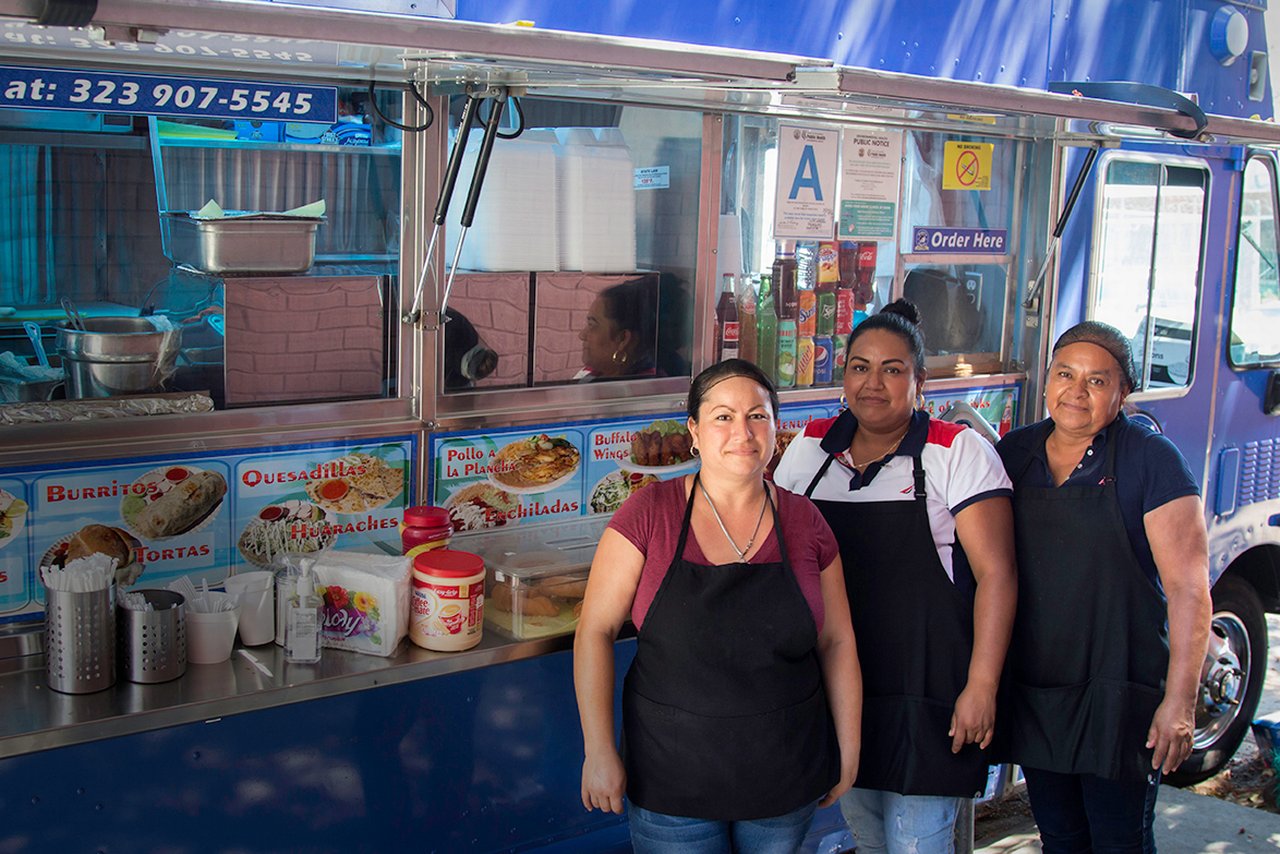September 2019
Access to capital and opportunity is a critical challenge for many low- and moderate-income groups in the US, as Deutsche Bank’s Community Development Finance Group explains to Neil Jensen
MINUTES min read
Shortages in housing and disparities in economic opportunity continue to be major problems in many countries, including highly developed economies. In the US, addressing these sorts of challenges has come to encompass more than state assistance, with the private sector also playing an important role. Banks, in particular, provide capital in underserved areas through the Community Reinvestment Act of 1977, and in the process facilitate investment that balances social impact with financial return.
Further to this point, in recent years there has been something of a shift in sentiment in financial markets, as individuals and institutions increasingly recognise the importance of environmental, social and governance factors in their investment decisions, and companies become more aware of their own social responsibilities above and beyond legal obligations.
Michaela Ludbrook, who is Managing Director and Head of Transaction Banking, Americas, the business in which the Community Development Finance Group (CDFG) sits, explains: “Deutsche Bank has been a leader among banks in supporting economic and housing development in New York City and was an early adopter of impact investing, having used its New York City experience to become the first bank to launch an emerging economy microfinance fund. We recognise the seriousness of our role in supporting local communities and the potential that our programmes have for helping to transform lives in those areas that are underserved.”
Bold initiative
In New York City, which is the primary focus of Deutsche Bank’s CDFG, there is a chronic housing shortage, so much so that Mayor Bill de Blasio launched an ambitious initiative to create 300,000 units of affordable housing by 2026. It has yet to solve the problem. In September 2018, New York City Comptroller Scott M. Stringer noted that, between 2005 and 2017, rising rents led to the disappearance of more than 425,000 affordable apartments – those renting for US$900 or less per month (in 2017 dollars) – from the city’s housing inventory. And 55% of them – 235,000 apartments – saw their rents increase to between US$1,051 and US$1,650. On the other end of the affordability spectrum, apartments renting at above US$2,700 a month more than doubled.1 Many people are therefore being priced out of the market.
No wonder then that much of the CDFG’s nearly US$600m (by commitment) loan and investment portfolio focuses on the city’s affordable housing stock. One such commitment is a US$10m loan to the New York City Acquisition Fund, which helps non-profit developers compete for viable sites with commercial developers.

Aerial view of the Teacher's Village project in Downtown Newark, New Jersey. A US$15m Deutsche Bank loan financed affordable housing and commercial space in this development
Driving inclusion
The CDFG’s portfolio also includes an array of impact loans and investments with non-housing social enterprises, not-for-profit organisations and fund managers that seek to generate a social good while providing an economic return for the bank.
One such example is the US$500,000 debt investment in Sixup, a US Treasury-certified Community Development Financial Institution (CDFI). It uses technology and an innovative approach to credit risk underwriting to provide affordable gap financing to enable high-achieving, low- and moderate-income students to graduate from quality four-year colleges and achieve pathways to meaningful careers. Many of the student borrowers are the first in their families to attend college. “Through our impact-first New Initiatives Fund (NIF), which is part of the Deutsche Bank Americas Foundation, we were able to provide catalytic capital to Sixup to help it grow from 34 to almost 1,800 loans in less than two years,” explains Jim Baek, Director of the CDFG.
Similarly, a US$500,000 debt investment as part of the foundation’s NIF was made in Pigeonly, an early-stage social enterprise, to expand its marketing capabilities. Pigeonly provides low-cost communications services to the families and friends of people in prison. It can provide 40–60% savings on telephone calls compared with typical prison charges, which can be upwards of US$15 for a 15-minute call. Pigeonly was founded by Frederick Hutson, who served five years in prison for trafficking marijuana. He launched and honed the business with backing from highly competitive accelerator programmes, including Y Combinator. The company’s customers, who are mostly low-income families, benefit from financial savings. In addition, various studies have shown that regular contact with family during time served can improve recidivism rates.
Opportunity Fund, a not-for-profit CDFI, is another client of the CDFG. Opportunity Fund’s mission is to drive economic mobility by providing affordable capital and responsible financial solutions to entrepreneurs and communities. Furthermore, the fund makes microloans for small businesses and invests in high-impact real estate community projects through the New Markets Tax Credit Program.2 Opportunity Fund’s CEO, Luz Urrutia, explains that they are filling a significant market gap for affordable loans: “Capital is a big issue for many small businesses – around 64% of employers report facing financial challenges and access to credit was cited as one of the top reasons.”

Small business owners with a food truck financed by Opportunity Fund. In 2018, Opportunity Fund’s loans created or sustained over 9,000 jobs
On a daily basis, 8,000 loan applications from small businesses are declined by banks in the US. Of great concern is that a significant number of declined loans are requested by ethnic groups and women-owned businesses, which suggests that financial inclusion is still a work in progress. Nevertheless, since its founding in 1994, Opportunity Fund has originated in excess of US$440m through over 17,000 loans that have supported more than 45,000 jobs.
"Capital is a big issue for many small businesses – around 64% of employers report facing financial challenges"
Grand plans
Opportunity Fund has just launched a bold five-year strategic plan. This will include a fourfold increase in the number of loans made over the past 24 years. “Between 2019 and 2023 we plan to originate US$1.2bn in loans to small businesses and invest US$174m in New Markets Tax Credit,” says Urrutia. “This will help nearly 30,000 small businesses and sustain 100,000 jobs. Some 90% will be businesses run by minorities and more than 70% will be run by low-income people.” The tax credits will finance 12 new community real estate projects, providing services such as healthcare, youth development and shelter to 60,000 people in need.3
In order to meet its ambitious targets, Opportunity Fund will raise US$100m in new debt capital from banks, foundations and other impact investors. “We will also sell loans to interested parties and raise US$47m in philanthropic support over the five-year period. The market need is so significant that we cannot do this alone; we need to bring in partners,” says Urrutia.
One of those new partners is LendingClub, an online lender that refers small business borrowers to Opportunity Fund through an integrated technology platform. “Our other non-profit and for-profit partners include community partners, CDFIs, truck dealerships and food truck fabricators. These entities help us reach borrowers that Opportunity Fund couldn’t reach on its own,” Urrutia adds.
“Deutsche Bank is also a terrific partner and is helping in creating a more inclusive financial system. We cannot do our work without our partners and we are certainly stronger by aligning ourselves with the bank to access its global presence, its expertise and its culture of philanthropy.”
Neil Jensen is a freelance writer, author and consultant and former Editorial Director at Deutsche Bank
Sources
1 See https://on.nyc.gov/2QfgeEb at comptroller.nyc.gov
2 See https://bit.ly/2XZktfh at en.wikipedia.org
3 See https://bit.ly/2LnGAW2 at marketing.opportunityfund.org
Go to Corporate Bank EXPLORE MORE
Find out more about products and services
Go to Corporate Bank Go to Corporate BankStay up-to-date with
Sign-up flow newsbites
Choose your preferred banking topics and we will send you updated emails based on your selection
Sign-up Sign-upSubscribe Subscribe to our magazine
flow magazine is published annually and can be read online and delivered to your door in print
You might be interested in
COMMUNITY {icon-book}
Ba[n]king trust Ba[n]king trust
flow’s Clarissa Dann reports on how a series of Deutsche Bank cooking events has helped to foster team togetherness amid the homeworking environment
COMMUNITY {icon-book}
Music to all ears Music to all ears
How did six disadvantaged children end up playing concerts in Boston as members of the Metropolitan Youth Orchestra of Hong Kong? Neil Jensen finds out how the Deutsche Bank youth engagement programme is changing lives
Trade finance, Technology {icon-book}
Data as a building block for digital trade finance Data as a building block for digital trade finance
How can the trade finance industry create a digital ecosystem? Pamela Mar, Managing Director, Digital Standards Initiative, International Chamber of Commerce (ICC) explores how bridging trade and financial flows could be the key



